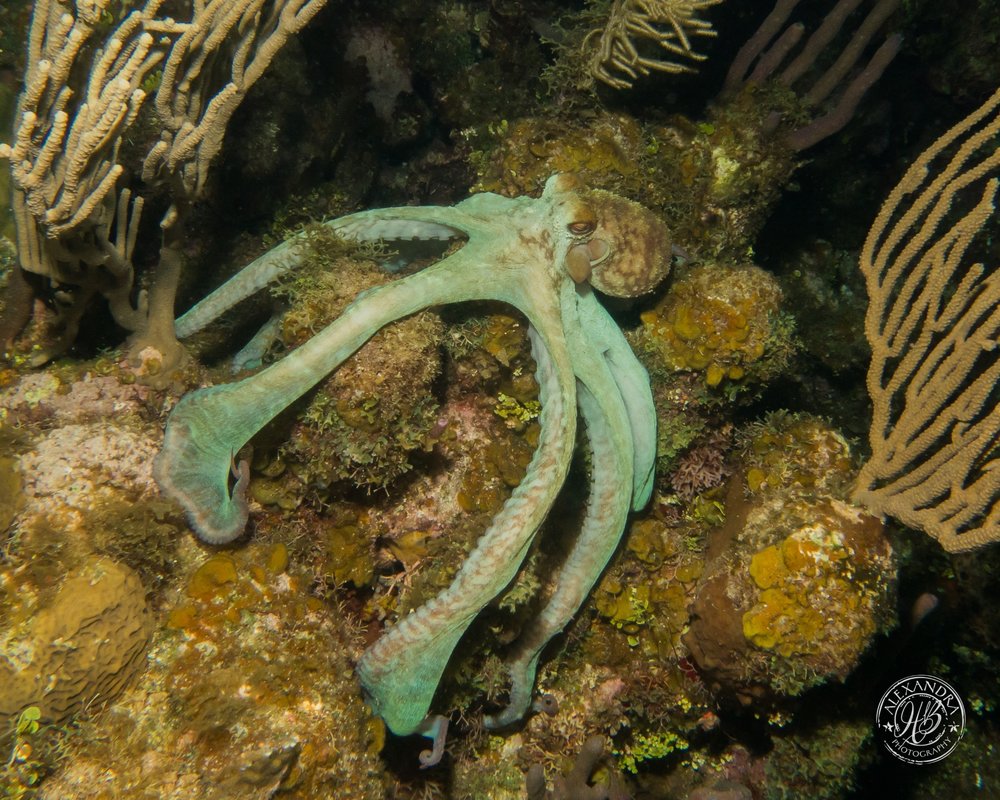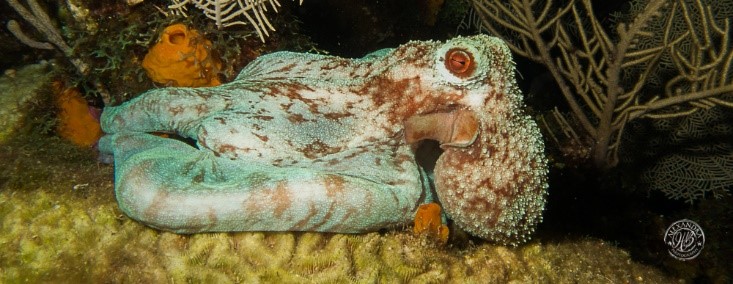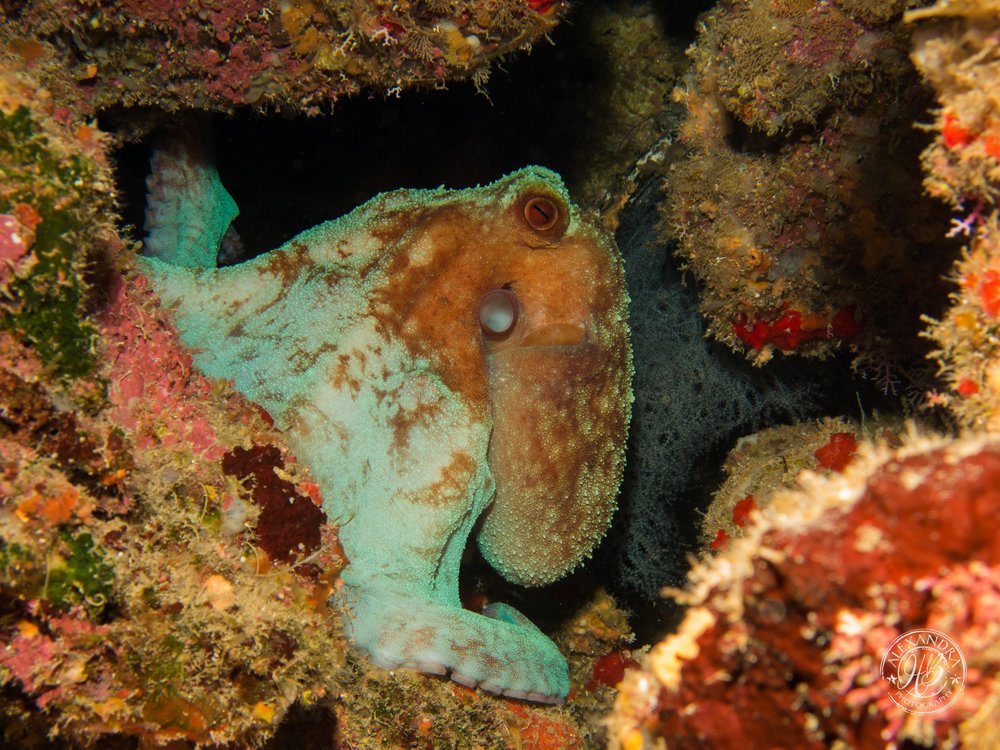I’ll start this by declaring I am deeply fascinated by octopuses. My first encounter happened while in Indonesia. I had 7 dives logged and was on my last dive in AOW. Octopuses are Houdini level experts at hiding and are rarely seen during the day as they are nocturnal feeders. Still, I held onto hope and it happened. Casually as could be, the instructor and I saw a small octopus rapidly changing colour, strolling across the sandy ocean floor. I was immediately fascinated and have held onto that novel experience since.
Of all the invertebrates that lack a backbone, octopuses are the most like humans. Partly how they maintain eye contact. Now, I don’t know about you but the minute I’m below – I’m looking for a fish connection. I am constantly creating scenarios in my head of swimming by Margaret, the porcupine fish who, no matter what the current brings in, is ALWAYS playing with a smile. Or I’ll swim by the ALWAYS grumpy goby, and start a dialogue… “Seriously Gerald, could that bottom lip stick out any further? I think you’ve perfected the Robert De Niro impression. She had a sex change 19 years ago….MOVE ON GERALD!”

Reef fish only really make eye contact for 5 seconds while swimming away from you, constantly looking over their tail fins, waiting for the ultimate attack. A girl can only take so much rejection before she swims off to stress out another fish you know? But octopuses are different. In a staring contest, they’ll most likely win. It’s impossible not to sense the intelligence behind their eyes. Their many other attributes speak across the human experience. Their dexterity could make any acrobatic jealous, any chef would be envious of their hundreds of taste sensitive suckers and any magician should only dream of being as capable of escaping a seemingly foolproof container. This distinguishes them from other intelligent mammals like dolphins, which for all their smarts are limited by their anatomy and can’t (easily) unscrew anything.

On the other hand, octopuses may be one of the most extra-terrestrial creatures in the ocean (have you seen their comparison in Arrival? They have 3 hearts and blue blood. As defense mechanism, they have evolved to eject ink while making a getaway. They have no bones. Their only inflexible body part is their beak and a nub of cartilage around their (amazing) brains. As a result they can move through any gap, hole or crack larger than these unyielding body parts.

Just as humans are mammals, Octopuses are cephalopods, which is Greek for “head-foot”. Literally, their anatomy is this weird. They have arms attached directly to one side of their head and their torso (a bag like sac) attached to the other side of their head. If you didn’t know, cephalopods is a category that captures snails, clams, slugs and oysters amongst others and they were the first predatory animal to hunt in the ancient seas. This category evolved over 500 million years ago from a small animal with a shell like a witch’s hat.
If that isn’t enough, if at this point you still need convincing that octopuses are worthy of your further attention, the nervous system of the octopus sets it apart from any other creature (as a result it is a constant topic of debate amongst concerned professionals whether the octopus is a conscious creature)
Octopuses have 500 million neurons. Honeybees and cockroaches, which after cephalopods, have a claim to the Earth’s most neuronally rich invertebrates, only have one million. (Humans have 86 000 million neurons)
Evaluating the intelligence of other animals more often than not tell us more about our own intelligence, and I am constantly playing with this idea during every dive, while trying to find my next fish connection. Experiences and interests, such as the one with the common octopus, creates further motivation to preserve the lives of other organisms so they can continue to adapt and grow, just as humans do, in an ever changing environment.
